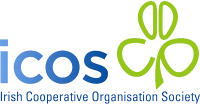
Damien O'Reilly
EU Affairs and Communication Manager, ICOS
Letter from Brussels - September 2024
Farmers across the country are anxiously looking to the end of next year when the Commission will decide whether to extend Ireland’s Nitrates Derogation of 220kg/N/ha beyond January 1, 2026.
Last year’s mid-term review resulted in a cutting of the derogation from 250kg/N/ha, which came as a shock and a blow to dairy farmers. The finger was pointed at the Minister for Agriculture, Food and the Marine, Charlie McConalogue, for not doing enough to plead Ireland’s case. But the EU Commissioner for the Environment was adamant that the cut was simply because of the Environmental Protection Agency (EPA) reports presented to him, which showed that water quality was not sufficiently good to extend the derogation.
That bitter pill swallowed, the Department of Agriculture, Food and the Marine (DAFM), farm organisations, Teagasc, and co-ops have been working night and day over the past 12 months to put in place measures aimed specifically at improving water quality. At the end of August, Minister McConalogue published the DAFM’s plan to progress his stated objective of retaining Ireland’s Nitrates Derogation, post 2025.
It is a very detailed plan of action to support farmers with advice and grant aid with the stated aim of securing a continuation of the derogation. Earlier this year, Teagasc published ‘Better farming for water – 8 actions for change’, a water quality advisory campaign. Meanwhile, all the big dairy co-operatives have incentivised campaigns in place to support suppliers’ efforts to protect water quality. And, thousands of farmers have taken part in farm walks this summer, organised by co-operatives, to show farmers methods that will not impact water quality.
Now this latest ‘all-of-agriculture’ drive spearheaded by the Government galvanises that work. Over the past three or four years, the rapid increase in low emissions slurry spreading and a dramatic reduction in chemical fertiliser use are among the practical approaches that farmers have taken that are sure to help with protecting water quality.
There is a frustration among farmers and co-operatives that this work is not being reflected in the most recent EPA water quality reports, which act as the bible as far as the EU Commission here in Brussels is concerned when deciding on a derogation extension. But there is the glimmer of hope that if all the big initiatives now in play aimed specifically at arresting a decline in water quality are to be implemented to the maximum, it is inevitable that future EPA reports will reflect that.
At the Energy and Farm Diversification Show in Gurteen agricultural college in July, there was an acknowledgement from the EPA representative that the agricultural sector is serious about protecting water quality. The hope is that the EU Commission and the new environment commissioner (to be appointed later in the year) will also acknowledge that power of work in making what is a huge decision for the future not only of dairy farmers but all farmers in Ireland in December 2025.






